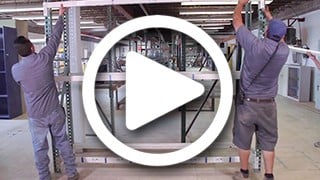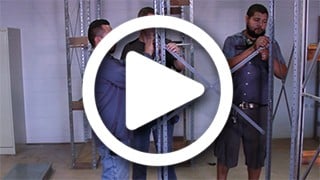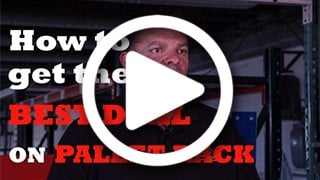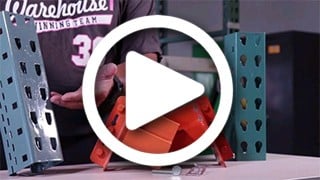A Guide to Buying Used Forklifts
Why Should I Buy Used Forklifts?
Everyone would love to have a new forklift fresh off the line with the latest technology and no mileage, but the reality is that a limited budget can force you into a stressful decision between buying new or used. The basic issues involved when buying a used forklift are the same when buying a used car. Damage to the forklift is the most obvious concern but there are several additional factors you should consider that, in turn, will reward you with big savings. The following guide will help you understand what to consider when buying used forklifts.
several additional factors you should consider that, in turn, will reward you with big savings. The following guide will help you understand what to consider when buying used forklifts.
A Guide to Buying Used Forklifts
Identify Forklift Needs
First, it is important to identify what qualities you need in a forklift. Will you be using the forklift on the concrete floor of a warehouse or will it be used outside on gravel? What are the aisle widths of your warehouse pallet rack and what size of forklift can they accommodate? If you looking at electric forklifts, is your warehouse wired for the the type of charging station that will be required?
Questions to Ask
There are certain questions you should ask when considering buying a used forklift. Don't restrain yourself to these questions only, but getting answers to the list below will help you determine if the forklift you're buying will work well for you and your needs.
- How many hours has been put on the forklift and how was it applied?
- Is there a service history for the forklift?
- Were there any recalls issued for it and if so, have the repairs been completed?
- What type of warranty can you get?
Evaluate Potential Problem Areas Just like buying a used car, it is beneficial to inspect common problematic areas, as they are expensive to repair. It is recommended that you bring a mechanic if possible, to help decide on the overall value of the forklift. These are the areas you should check:
- General Operations - Start the forklift and listen for any odd noises from the engine. Inspect the hydraulic levers and test all movements of the arms and mast. Test how responsive the steering and braking are, and check all safety devices such as the horn and reverse alarm.
- Forks - Inspect the lift forks for cracks and warping caused by overloading or overuse. Check the thickness of the fork heels, which should match the the thickness of the fork shank (part where fork connects to the hanger).
- Mast rails, lift chains, and cylinders - Check the mast rails for cracks that could affect the structural integrity of the mast. Follow the lift chains, looking for any damaged or missing links or anchor pins. Inspect the chains and hoses to the tilt cylinders, noting any signs of damages or leaks.
- Frame - Walk around the forklift to check for damages to the body. Look at the canopy main supports for any bends or damage that could decrease it's ability to protect the operator. If the cab is enclosed, check for damaged windows. Finish by inspecting tires for missing rubber or lug nuts.
- Engine compartment - Check for any leaks, dirt, and hose cracks in the engine compartment. Check the oil level and condition. Make sure belts are tight and not cracked. Look at the air filter and make sure it is clean. If the forklift is electric, check that all battery connections are in good shape. Complete your inspection by checking for damage to the exhaust guard at the rear of the lift and checking that the counterweight bolts are secure.
Additional Advice
When buying used forklifts, take a conservative approach to your decision. Start you research on what to purchase and where to purchase from. Consider all factors when identifying your needs and wants. Taking your time in the process will return quality equipment that meets your company needs and budget. Along with the inspection of the equipment, it is always a good idea to inspect and know who you are buying your used forklifts from. Being knowledgeable of your seller can be important in dictating the legitimacy of information you get about the forklift. Buying equipment from a reputable dealer will reduce your chance of buying faulty or low quality equipment, saving you money down the road. Warehouse1's daily use of forklifts makes us educated on used forklift purchasing as well as inspections and maintenance. Check out our online inventory of forklifts and accessories, or speak to one our experts.



